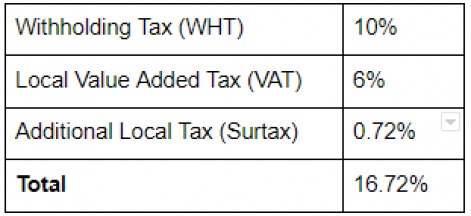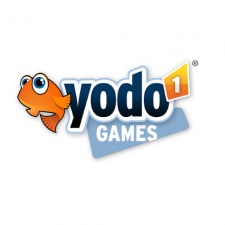With 600 million players and quarterly revenue reaching $7.7 billion US dollars, China remains the world’s most lucrative mobile gaming market. At the same time, regulations for publishing mobile games in China are getting increasingly strict.
Since 2011, Yodo1 has been helping game developers and studios of all sizes achieve success in the Greater China region. Our publishing team is constantly researching new regulations to provide our partners with the most current information.
In this article, we have compiled:
- Everything you need to submit when applying for an ISBN
- What you need to know about China’s copyright certificate
- How taxes will work for your game in China
Obtaining an ISBN License: FAQ
Whether you have yet to enter the Chinese market or already have titles listed in the country’s Apple and Android app stores, you will need a valid ISBN. With more than 70,000 mobile games delisted from China’s App Store this year, developers have no choice but to take the regulations more seriously.
For a summary of the latest news from Apple China, as well as implications and advice for developers, please refer to our App Store ISBN news page.
Can I apply for an ISBN on my own?
The short answer is: not without a registered and licensed Chinese branch or a China-based partner.
The entity that applies for an ISBN must already have several other publishing licenses; foreign companies that do not have these licenses will either need to open a Chinese branch and go through the long and complex process of acquiring the necessary documents or partner with a Chinese-based company, which will submit the application on their behalf, and be legally responsible for the game in China and for resolving any disputes that may arise.
Partnering with a local company is also beneficial when it comes to localising and optimising your game for the Chinese market. Even large game development companies who can acquire their own licenses will work with local partners to help with this aspect.
What is the process for getting an ISBN?
Foreign companies will need to prepare and provide necessary documents (listed below) to the local Chinese partner, which will then need to further prepare the materials for submission to the relevant authorities.
The authorities will review the documentation and send a report communicating any changes deemed necessary, which you must implement. The NPPA will send a feedback report a maximum of three times. If, after the third report, the changes made are not satisfactory, no more feedback will be given and no license will be granted. If the process is completed successfully, you will receive the ISBN for your game.
How long does it take to get an ISBN?
The estimated waiting period for an ISBN license is 12 to 18 months, from application to approval.
If my application is rejected, can I re-apply for the same game?
As mentioned above, you will have a maximum of three chances to fix elements of your game that do not meet the requirements.
Can I use one ISBN for multiple games?
No, an ISBN is strictly to be used for one game; it is illegal to use one ISBN for more than one game. If your game is on a so-called “shared license”, it will be directly removed from all Chinese app stores, the ISBN used will be revoked, and the publisher will be penalised.
What are the odds of my ISBN application being rejected?
China’s National Press and Publication Administration (NPPA) issues a limited number of ISBN licenses to foreign games every month, so the possibility of a game being rejected is something you should discuss with your local partner in detail in order to estimate the risk.
Which documents do I need to submit?
The list of documents to submit is lengthy and requires a lot of attention to detail; the final application can be as long as 300 pages.
Below is an overview of the documents and materials you and/or your local partner will need to provide the authorities when submitting your ISBN application.
Documents required in an ISBN application
1. Contract with a Chinese partner. Your original contract, along with authorisation of legal handling and a scanned copy of your business registration from your home country.
2. Game details. A detailed description of your game’s performance in overseas markets, including studio location, regions where the game is currently operating, the approximate number of users, revenue, and social impact.
3. Name description. A description of the game’s English name, including its background and meaning.
4. Screenshots of the game’s overseas (non-Chinese) version.
5. Copyright details. A screenshot of the overseas (non-Chinese) version of your game that displays your copyright information (see example below).

6. The Chinese version of the game. For mobile games, developers must submit one Android and one Apple device, each with the game installed.
7. Anti-addiction systems. New regulations require games to have specific real-name registration, time control, payment, and tourist mode systems. Screenshots showing each system in the Chinese version of your game must be included.
8. All Chinese script. A complete list of Chinese characters that appear in the game, including but not limited to system prompts, NPC dialogues, mission plot descriptions, and game prop names.
9. Hardware configuration. Details of the minimum hardware required to run the game on a mobile device and the category of hardware needed.
10. Software. The name and version number of the software used, as well as the development language and an estimate of the total lines of code.
11. Technical descriptions. Brief descriptions of the game’s main functions and technical characteristics.
For a comprehensive list of China’s licensing requirements, you can refer to our translation of the NPPA’s approval process.
Getting your Chinese Copyright Certificate: FAQ
Why do I need a Chinese copyright certificate?
Because China has its own system for registering copyrights and trademarks, you will need to acquire new copyright certificates for each app you intend to publish in China.
The copyright certificate is not required while applying for the ISBN. However, you won’t be able to get your game on any of China’s app stores without one; it will be required by every Chinese app store when submitting your game.
What does the certificate do?
The copyright certificate required for publishing specifies a unique identification number (different from your ISBN), the name of the app, and the company that owns the certificate.
The certificate proves the ownership of an app, connected to its code, to the Chinese app stores and protects from unauthorized use of the same or similar name by another developer.
The name of your app in China must match the name on the certificate. If you want to change the name, you must apply for a new copyright certificate.
Can I apply for a copyright license on my own?
Yes, overseas developers can apply for the copyright license by themselves. However, because it requires a lot of back-and-forth with the Chinese government, it can take six-to-eight months to complete the process on your own.
If your Chinese partner applies for you, it takes two-to-three weeks. In this case, your partner will be the legal holder of the Chinese copyright certificate on your behalf.
What must be included in the application?
A Chinese game copyright application will call for the following:
- Basic information. Your company’s name, address, and business license number.
- Operation manual. A document that shows how users will use your app.
- Source code sample. A document containing the first 2,000 and last 2,000 lines of your app’s source code.
Why do I need to submit a source code sample?
In China, copyrighting a game generally requires submitting the first and last 2000 lines of your app’s source code. Providing a small sample of your source code gives you an additional layer of protection and can be used to prove ownership in a copyright dispute.
How taxes work for games in China
Any foreign developer who publishes a game in China will be taxed on their income generated in China according to the table below.

If a Double Taxation Agreement (DTA) exists between the developer's own country and China, the developer can be exempted from the 10 per cent WHT in their home country. This effectively reduces China’s tax to 6.72 per cent.
Consult ChinaTax.gov for a list of countries with which China has a Double Taxation Agreement.
The Chinese market may not be the easiest to enter but it still represents 33 pet ceny of the mobile gaming industry’s annual US$ 44 billion profit.
Yodo1-published games such as Rodeo Stampede, Transformers: Earth Wars, and Ski Safari have achieved great success on China’s Apple and Android app stores and our partners have found the payout more than worth their while.
We’re ready to help you publish your game in China, too. Get in touch via bd@yodo1.com.
And while you’re waiting on your ISBN, you can start generating revenue in China right away through the booming, hassle-free HTML5 platform - the hottest way to enter the Chinese gaming market. Contact us!
About Yodo1
Yodo1 is a game platform company that helps developers better market, manage, and monetize their games. Our AI-powered tools and global expertise in areas such as mobile advertising, community management, and digital IP licensing enable partners to increase playtime, revenue, and retention. Our vision is to open the world of gaming success to anyone with the talent to develop. To learn more, visit www.yodo1.com and follow us on LinkedIn.























